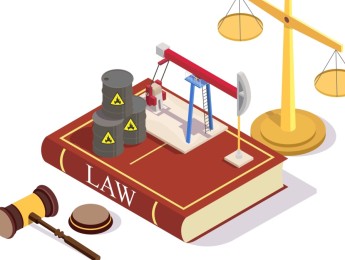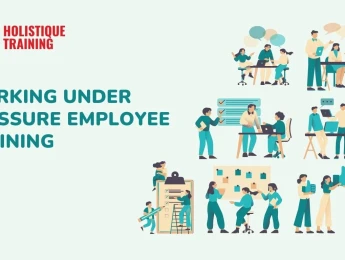The oil and gas industry worldwide is constantly changing. This makes securing a contract a minefield and makes it important to stay updated with changes to legal contracts and agreements. Contract managers, commercial managers, and lawyers should agree on contract changes and consider the benefits for all parties entering an Upstream Gas and Oil contract.
This involves examining the differences between the main contractual terms and what changes mean for the overall market and localised companies. When dealing with global operations, the contractual terms must protect all parties and remain within the laws and regulations set down by each country.
As a contract stakeholder, it is important to assess the company's benefits, predicted forecasts for change, and possibilities created by production-sharing contracts. From a regulation perspective, it’s critical to understand the legal Explorations & Production Agreement (E&P) and related licensing agreements. This protects all parties involved in the contract and helps manage disputes if they arise later.
Upon completion of this course, participants will be able to:
- Understand the relevant regulations regarding petroleum contracts.
- Develop a working knowledge of the bidding and tendering process.
- Create a beneficial sharing contract.
- Understand negligence can affect your legal standing.
- Develop key contractual terms that work for all parties.
- Understand the legal implications of decision-making outside of the agreement.
- Draft mutually beneficial service agreements.
- Develop a risk assessment to aid contract management.
- Provide relevant case information to support contractual change.
- Negotiate with supply chains to create a robust workstream without legal disputes.
- Develop legal contracts that abide by exploration and exploitation agreements and operate within a licensing agreement.
This course is designed for anyone responsible for petroleum contract management or procedural change, which may require legal re-writes or support. It would be most beneficial for:
- Contract Managers
- Business Owners
- Supply Chain Managers
- Lawyers
- Procurement Managers
- Legal Advisers in Gar & Oil
- Contract Engineers
- Contract & Bid Writers
This course uses various adult learning techniques to aid full understanding and comprehension. Participants will watch videos and participate in interactive presentations to learn the legal requirements for various types of petroleum contracts.
Each team will review real-world contract examples and work to uncover potential risk areas which should be the focus of future development. They will conduct role-playing activities to increase communication and negotiation skills and ensure a positive working relationship for all parties. They will be presented with resourcing requirements to understand the techniques and tactics for creating a positive supply chain partnership.
Day 5 of each course is reserved for a Q&A session, which may occur off-site. For 10-day courses, this also applies to day 10
Section 1: The Bidding & Tendering Process
- Assessing risk and evaluating your contract requirements.
- Your legal regulations and how to prove your compliance.
- Your finished bid and presentation.
- Negotiating a mutually beneficial agreement.
- Bidding confidentiality.
- Understanding using practical examples.
Section 2: Production Sharing Contracts (PSCs)
- Complexity levels based on varied contracts.
- New jurisdictions of PSCs.
- Calculation and use of formulas.
- Understanding your evidence and data.
- Non-fiscal legal terms.
- Legal terminology.
- Your terms and conditions.
- Understanding royalties and examples.
Section 3: Legal Agreement Drafting & Rewrites
- The MAC clause and what you need to know.
- The MAE clause and the legal differences.
- The nature of ‘farm-out’ and legal interests.
- Earning requirements and backfill.
- Assigned interest and reserves.
Section 4: Sourcing Equipment & Resources
- Equipment and rental agreements.
- Understanding your equipment requirements and what works for you.
- MRO.
- Drilling equipment to create a reliable supply.
- Understanding your supply chain and avoiding risks.
Section 5: Multi-party Contracts
- Contractors and managing employees.
- The risks and rewards of teaming agreements.
- Crude oil production agreements.
- Joint ventures and negotiation to develop a mutually beneficial agreement.
- Developing a support framework for all parties.
Section 6: Decommission of Phase Agreements
- Your crude oil sales agreement.
- How to decommission and reapply.
- The abandonment principle.
- Payment methods and securing your profits.
- Tax implications based on contractual agreements.
- Liability assignment.
- Letters of credit and their important role.
Upon successful completion of this training course, delegates will be awarded a Holistique Training Certificate of Completion. For those who attend and complete the online training course, a Holistique Training e-Certificate will be provided.
Holistique Training Certificates are accredited by the British Assessment Council (BAC) and The CPD Certification Service (CPD), and are certified under ISO 9001, ISO 21001, and ISO 29993 standards.
CPD credits for this course are granted by our Certificates and will be reflected on the Holistique Training Certificate of Completion. In accordance with the standards of The CPD Certification Service, one CPD credit is awarded per hour of course attendance. A maximum of 50 CPD credits can be claimed for any single course we currently offer.
- Course Code IND01-115
- Course Format Classroom, Online,
- Duration 5 days














